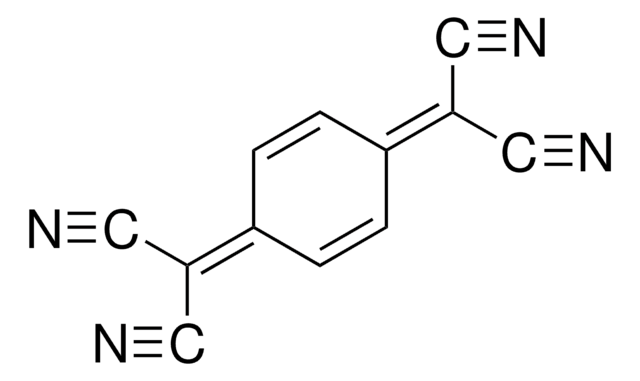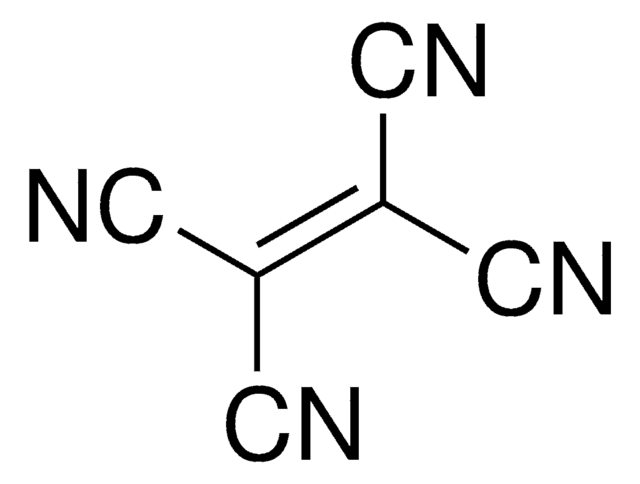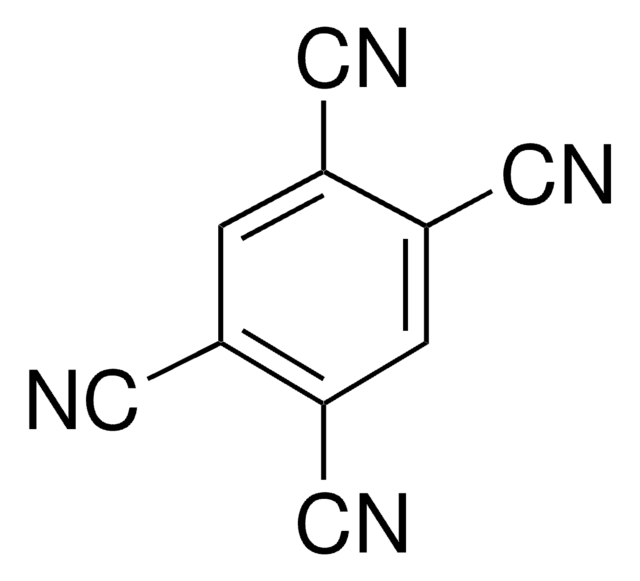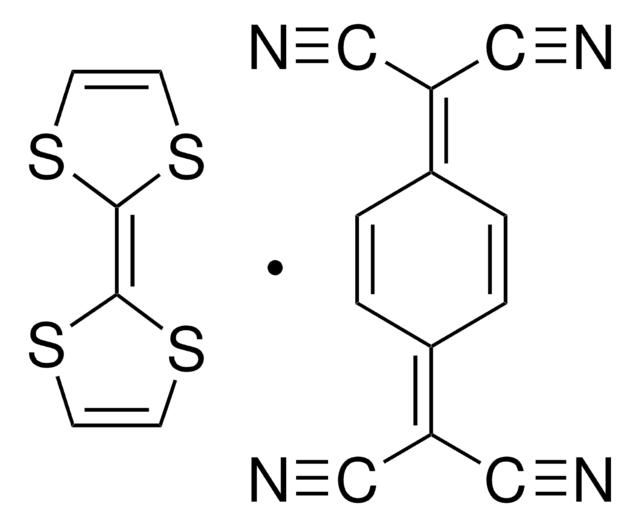376779
2,3,5,6-Tetrafluoro-7,7,8,8-tetracyanoquinodimethane
97%
Synonym(s):
(2,3,5,6-Tetrafluoro-2,5-cyclohexadiene-1,4-diylidene)dimalononitrile, 7,7,8,8-Tetracyano-2,3,5,6-tetrafluoroquinodimethane, F4TCNQ
About This Item
Recommended Products
Quality Level
Assay
97%
form
solid
mp
285-290 °C (lit.)
SMILES string
FC1=C(F)C(\C(F)=C(F)/C1=C(\C#N)C#N)=C(\C#N)C#N
InChI
1S/C12F4N4/c13-9-7(5(1-17)2-18)10(14)12(16)8(11(9)15)6(3-19)4-20
InChI key
IXHWGNYCZPISET-UHFFFAOYSA-N
Looking for similar products? Visit Product Comparison Guide
General description
Application
Signal Word
Danger
Hazard Statements
Precautionary Statements
Hazard Classifications
Acute Tox. 3 Dermal - Acute Tox. 3 Inhalation - Acute Tox. 3 Oral
Storage Class Code
6.1C - Combustible acute toxic Cat.3 / toxic compounds or compounds which causing chronic effects
WGK
WGK 3
Flash Point(F)
Not applicable
Flash Point(C)
Not applicable
Personal Protective Equipment
Choose from one of the most recent versions:
Already Own This Product?
Find documentation for the products that you have recently purchased in the Document Library.
Customers Also Viewed
Articles
Highly reducing or oxidizing species enhance organic semiconductor conductivity by reducing charge-carrier injection barriers.
Fabrication procedure of organic field effect transistor device using a soluble pentacene precursor.
Our team of scientists has experience in all areas of research including Life Science, Material Science, Chemical Synthesis, Chromatography, Analytical and many others.
Contact Technical Service



![Dipyrazino[2,3-f:2′,3′-h]quinoxaline-2,3,6,7,10,11-hexacarbonitrile 95% (HPLC)](/deepweb/assets/sigmaaldrich/product/structures/151/558/c0e2c95f-5228-4864-a7a5-4b9765a19840/640/c0e2c95f-5228-4864-a7a5-4b9765a19840.png)






